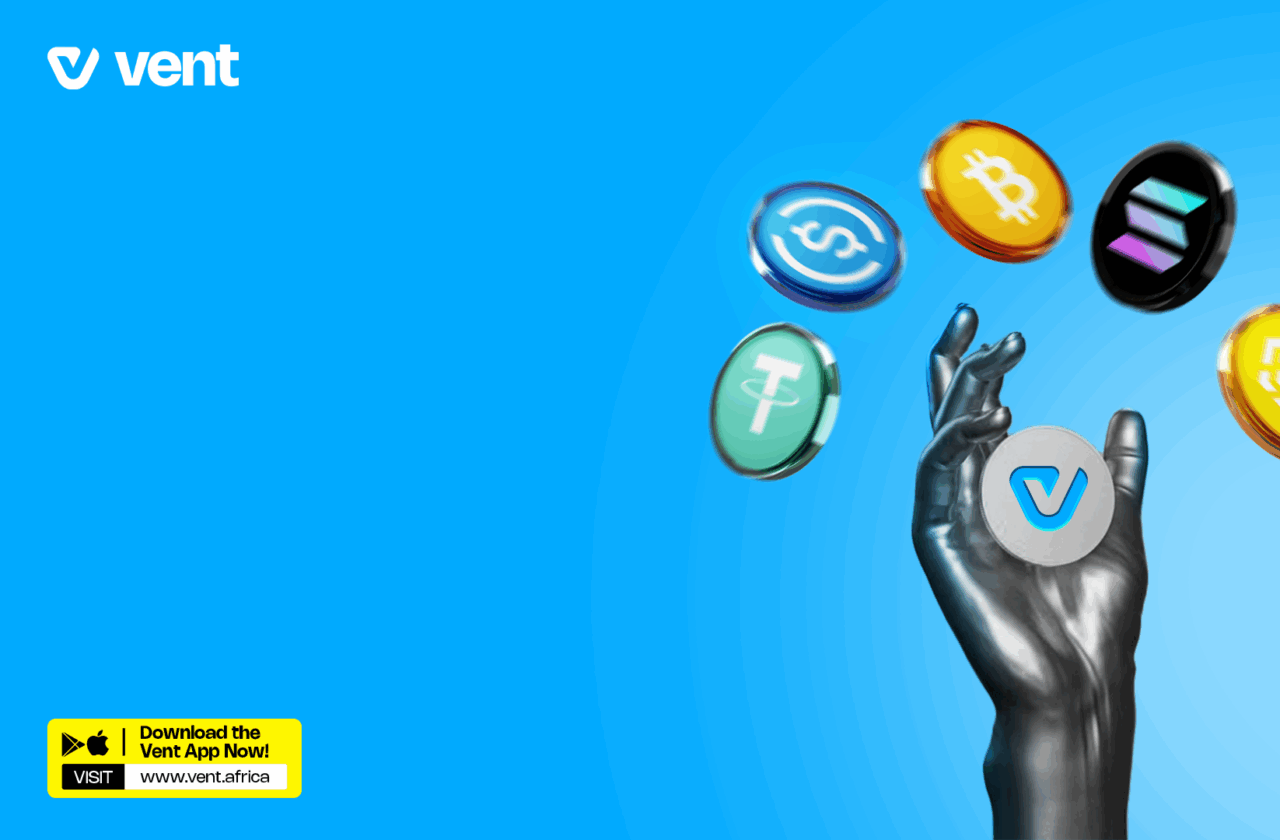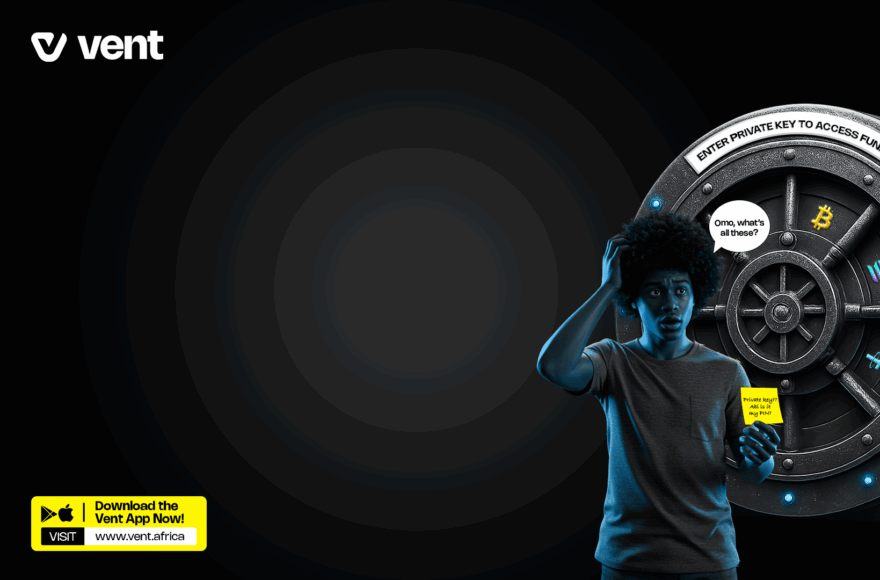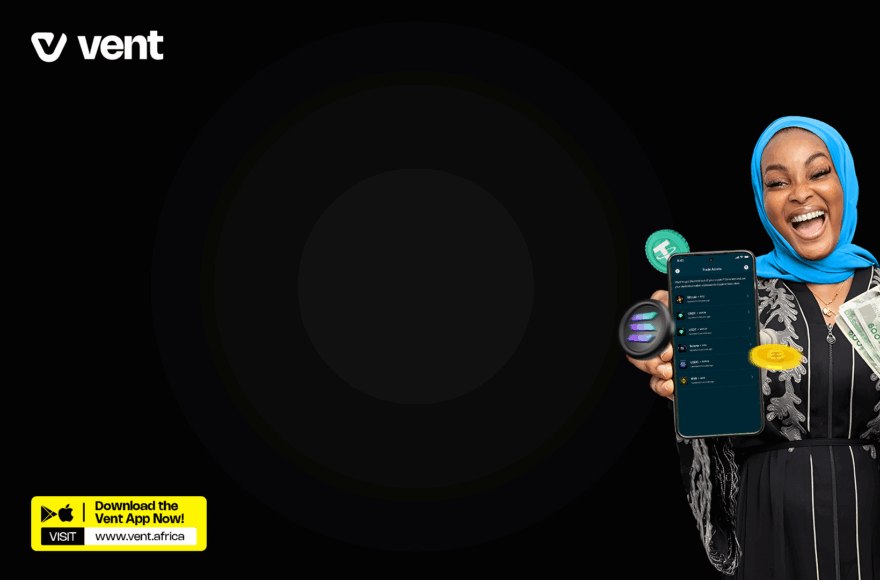What is Cryptocurrency?

Remember when sending money to someone outside Nigeria meant queuing at the bank, filling out endless forms, and praying it didn’t take a week? Now picture sending value to anyone, anywhere, in minutes, without stress. That’s the power of cryptocurrency.
Cryptocurrency isn’t just internet money. Crypto is digital money built on new technology that allows people to transfer, store, and use value without any central authority.
But here’s the thing: many people still find it confusing. What is crypto? Is it safe? What can you use it for? How do crypto wallets work? If these questions sound familiar, this post will break everything down plainly.
What’s the Gist?
- Cryptocurrency is digital money that runs on blockchain technology.
- Bitcoin was the first cryptocurrency, but today, there are thousands of altcoins, such as Ethereum, Solana, and Cardano.
- Stablecoins like USDT and USDC are pegged to the dollar and often used for fast payments.
- Crypto wallets (custodial and non-custodial) are essential for safely storing and sending coins.
- Nigerians use crypto for remittances, savings, trading, and avoiding high banking fees.
- Vent is the fastest way to instantly cash out crypto to Naira, with no hidden fees.
What is Cryptocurrency?
At its core, cryptocurrency is a form of digital money. Unlike Naira or Dollars, which are issued by governments and managed by banks, crypto is decentralised. This means no single authority controls it. Transactions happen peer-to-peer and are verified transparently.
The first cryptocurrency, Bitcoin, was launched in 2009 by the mysterious Satoshi Nakamoto. It was created as an alternative to traditional money that couldn’t be controlled by governments or devalued by inflation. Fast forward to today, and Bitcoin has grown into the largest digital asset, with thousands of other cryptocurrencies following in its footsteps.
Think of it like this:
Naira = paper money managed by the CBN.
Crypto = digital money managed by code and community.
How Does Cryptocurrency Work?
Cryptocurrencies run on a blockchain, like a digital ledger that records every transaction openly. Once a transaction is added, it cannot be changed, making crypto transactions transparent and permanent.
When you send crypto, your transaction is broadcast to the network. Miners (in proof-of-work systems like Bitcoin) or validators (in proof-of-stake systems like Ethereum and Solana) confirm it. Once approved, it’s added to the blockchain and becomes permanent.
N.B.: Proof of Work (PoW) is the method Bitcoin uses to keep its network secure: computers, called miners, race to solve complex puzzles. The winner adds a new block to the blockchain and earns Bitcoin. It’s very safe but uses a lot of energy and works more slowly than newer systems.
N.B.: With Proof of Stake (PoS), validators “stake” their coins instead of solving puzzles as collateral. The more coins staked, the higher the chance of validating the next block. It’s faster, cheaper, and energy-friendly. Ethereum, Solana, and Cardano use this.
To use crypto, you need a wallet. A crypto wallet is simply a tool for storing and managing digital money. A crypto wallet doesn’t hold coins physically. Instead, it has the keys to access your funds on the blockchain. Without your private key, you can’t move your money.
There are two keys:
Public Key: like your account number. Share it freely.
Private Key: like your ATM PIN. Never share it.
If you lose your private key, your funds are gone forever. That’s why keeping your wallet safe is essential.
Types of Cryptocurrencies
Not all crypto is the same. Here are the major categories:
1. Bitcoin (BTC)
The first and biggest crypto. It’s mainly seen as “digital gold”—a store of value and hedge against inflation.
2. Altcoins
These are every other crypto aside from Bitcoin. They include Ethereum (ETH), Solana (SOL), Cardano (ADA), and thousands more. Each has different features, from powering smart contracts to supporting DeFi apps.
3. Stablecoins
Unlike Bitcoin or Ethereum, which can rise and fall sharply, stablecoins like USDT and USDC are pegged to stable assets like the US dollar. They’re perfect for payments and trading without worrying about volatility.
4. Utility & Governance Tokens
Tokens like UNI (Uniswap) or AAVE are used for voting, staking, or accessing certain services on blockchain platforms.
5. Meme Coins
Coins like Dogecoin and Shiba Inu started as jokes but gained massive communities. Some people use them for speculation; others just for fun.
What are Token Standards?
You’ll often see terms like ERC-20, TRC-20, and BEP-20. Token standards are just the “rulebooks” for tokens on different blockchains:
- ERC-20: Ethereum standard. Secure, but can be slow and expensive.
- TRC-20: TRON standard. Fast and cheap, popular for USDT.
- BEP-20: Binance Smart Chain standard. Affordable and widely supported.
On Vent, we support TRC-20 and BEP-20 for USDT because they’re faster and cheaper for our users.
Why is Interest Rising in Cryptocurrencies?
According to Cointelegraph, in 2025, Google searches for “altcoin” hit their highest since 2021. Here’s why interest keeps growing:
- Bull Market Momentum: Bitcoin breaking records always draws attention. Once BTC moves, people start looking into altcoins.
- DeFi Boom: Decentralised finance apps on Ethereum, Solana, and others give people ways to stake, lend, and borrow.
- Stablecoin Usage: Many Nigerians use stablecoins like USDT for remittances and daily transactions.
- Meme Culture: Hype-driven tokens like DOGE and PEPE keep crypto trending online.
- Real Utility: Projects solving real problems, fast payments, and cross-border transfers are gaining trust.
Why Do People Use Cryptocurrencies?
Crypto isn’t just hype. People use it for real reasons:
- Fast and Borderless Payments: Send money across borders in minutes. Perfect for Nigerians receiving funds from abroad.
- Store of Value: Bitcoin and stablecoins help protect against inflation and naira devaluation.
- DeFi and Investment: Stake, trade, and earn interest on your crypto.
- Everyday Transactions: With apps like Vent, you can cash out Tether (USDT), Bitcoin (BTC), Binance Coin (BNB), USD Coin (USDC), or Solana (SOL) directly to your bank account without stress.
Advantages of Cryptocurrencies
- Open 24/7 — no bank holidays.
- Lower fees than traditional banks.
- Transparent, with all transactions on the blockchain.
- More control — you own your money, not a middleman.
Risks and Challenges of Cryptocurrencies
Of course, crypto isn’t all rosy. Here are the downsides:
- Price swings (volatility).
- Hackers and phishing scams.
- Losing private keys.
- Regulatory uncertainty in countries like Nigeria.
That’s why using trusted platforms like Vent is crucial.
How to Cash Out Crypto in Nigeria (The Vent Way)
Here’s what you care about most: how to use crypto in Nigeria.
On Vent, it takes just a few steps. Follow these steps to set up your Vent account:
1. Download the Vent App from the Play Store or App Store.
2. Sign up and verify with your BVN and phone number.
3. Send your crypto (BTC, BNB, USDC, USDT, or SOL) to your reusable wallet address.
4. Instantly receive Naira in your Nigerian bank account.
No hidden fees. No middlemen. No waiting hours.
Frequently Asked Questions
Is crypto legal in Nigeria?
Nigerians can own and trade crypto, but banks can’t process crypto transactions directly. That’s why platforms like Vent exist to bridge the gap.
Can I cash out crypto directly to Naira?
Yes. With Vent, you can convert USDT, BTC, BNB, USDC, or SOL to Naira in seconds.
Which crypto is best for beginners?
Stablecoins like USDT or USDC are easier because their qvalue doesn’t fluctuate. Don’t forget to always do your own research as crypto investments are volatile.
Is USDT the same as USDC?
Both are stablecoins pegged to the dollar but issued by different companies (Tether for USDT, Circle for USDC).
How much is 1 Bitcoin to Naira today?
It depends on the market. You can always check real-time rates on the Vent app.
How do I keep my crypto safe?
Keeping your wallet safe is simple. Use non-custodial wallets, enable two-factor authentication, and never share your private keys.
Final Thoughts
Cryptocurrency has grown from being a small idea to a global tool for handling money. Whether you’re using Bitcoin as a store of value, altcoins for investment, or stablecoins for everyday payments, crypto is shaping the future of money.
But in Nigeria, the biggest challenge has always been simple: How do you quickly turn crypto into real cash? That’s why Vent exists. With fast swaps, no fees, and trusted support, Vent makes it easy to cash out crypto to Naira without stress.
Ready to start?
👉 Download Vent today and join thousands of Nigerians cashing out confidently.




